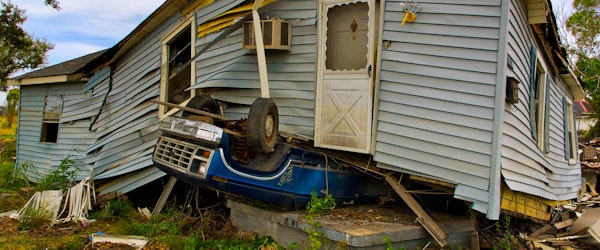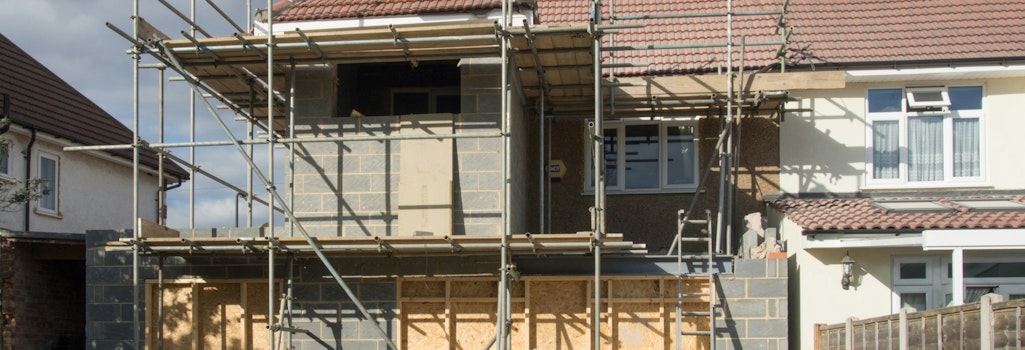
The Crucial Role of Disaster Preparedness for Homeowners and Insurers
Wednesday, March 27th, 2024 Partner ContentThe importance of disaster preparedness cannot be overstated in a world facing escalating climate change and increasingly frequent natural disasters. Proactive measures to mitigate losses are imperative for both homeowners and insurers. Natural disasters range from hurricanes and floods to wildfires and earthquakes, all of which pose significant risks to homeowners and insurers alike.
The financial tolls of these events can be staggering. One only needs to look at the unprecedented Californian wildfires in 2020 to see that. The fires destroyed over 10,000 structures and resulted in economic losses of over $19 billion. Then, there is the loss of life and disruption to livelihoods, neither of which can be valued accurately. This article highlights how being prepared for natural disasters benefits homeowners and those who insure them.
Proactive Measures for Homeowners
Homeowners in every state should prepare for the possibility of a natural disaster. Residents of some states are at a higher risk of experiencing a life-changing catastrophe than others. We have already touched upon California and its wildfires, but disasters can strike anywhere without warning. Florida is famous for sports and entertainment and is at high risk during hurricane season. Similarly, Alaska and Hawaii are among the states with the highest number of earthquakes each year. Fail to prepare, prepare to fail, as the adage goes.
Have a Plan in Place
Every homeowner should have a comprehensive disaster preparedness plan. Such a plan is the cornerstone of effective risk management, mainly if it encompasses various scenarios, from natural disasters to power outages or gas leaks.
Plans should include detailed evacuation routes, emergency contacts, having an out-of-state contact person for when local communication channels are disrupted, and at least 72 hours worth of essential supplies for the immediate aftermath of a disaster.
Important documents such as identification papers, insurance policies, financial records, medical records, and property deeds should be safeguarded in a waterproof or fireproof container. In case the property is destroyed, consider storing digital copies on a portable storage device or in the cloud.
Help Mitigate Disasters With Home Improvements

Homeowners can take steps to help reduce the risk of property damage and personal injury during a disaster. Several mitigation strategies exist depending on the specific hazards prevalent in your region.
Strengthening garage doors, roofs, and windows is vital in hurricane-prone areas. Modifying landscaping by trimming trees, removing dead vegetation, and creating a buffer zone free from flammable materials are excellent ideas in areas where wildfires are common.
Those people living in flood-prone areas can elevate their homes or install floodproofing measures like sump pumps, backflow valves, and flood barriers. Homeowners in an area prone to earthquakes can invest in anchoring the house to its foundation, reinforcing walls, and bracing structural components to help reduce the risk of collapse.
Maintain Adequate Insurance Coverage
Insurance policyholders should ensure their policy adequately covers them and understand what is covered and excluded. It may be necessary to purchase additional coverage in some locations, such as those prone to flooding.
Creating a detailed inventory of possessions is highly recommended. Include photographs, descriptions, and receipts. Such an inventory will help facilitate the claims process and ensure you receive fair compensation in the event of a loss.
The Role of Insurers
Insurers have a crucial role in disaster preparedness, mainly because they are liable for potentially massive payouts when disasters strike. By actively promoting risk mitigation, insurers can reduce the likelihood and severity of losses.
Offering premium discounts for homeowners who invest in mitigation measures would help encourage those homeowners to fortify structures or install protective devices. Similarly, insurers can conduct risk assessments, evaluating the vulnerability of a policyholder’s property while providing personalized recommendations for mitigation measures. Many homeowners are blissfully unaware of the potential risks disasters pose to their properties, resulting in them purchasing inadequate coverage and neglecting to protect their homes.
Insurers should not stop at promoting risk mitigation; they should also provide homeowners with guidance, resources, and support so they can develop and implement effective disaster preparedness plans.
Such tools and resources include, but are not limited to, calculators, checklists, and guides to help homeowners assess their risks before taking measures to protect their families and properties.
It is also important for insurance agents to act as trusted advisors to policyholders, ensuring they fully understand what their policy covers and what is excluded. Every customer should be treated as a unique individual, arming them with enough knowledge to make an informed decision on the level of coverage they require.
Be An Advocate For Resilient Communities
Insurers’ roles in risk mitigation do not end with informing homeowners about potential risks; they can and should advocate for building and creating resilient communities by advocating for initiatives, regulations, and policies that enhance a community’s preparedness and response capabilities.
The insurance industry can advocate for building code enhancements and standards that incorporate resilient design principles and promote safer construction practices, which can help reduce the risk of property damage or loss during disasters.
Lastly, few entities have more knowledge about disasters than insurers. Pooling resources, expertise, and best practices with government agencies, nonprofit organizations, and community stakeholders helps insurers contribute to communities better equipped to withstand and recover from disasters.
Conclusion
Adequately preparing for a disaster relies not on a single party but on collaborating with homeowners and insurers. Homeowners must take a proactive approach and prepare for every eventuality, even those that seem like they have a remote chance of occurring.
Compiling a detailed preparedness plan, investing in mitigation measures, and ensuring insurance policies provide adequate coverage are just a few steps that fall at homeowners’ doors.
Insurers play a multifaceted role in disaster preparedness. They promote risk mitigation, provide resources and support to policyholders, and advocate for more resilient communities.
All these features combine to help prepare for disasters and assist in the rebuilding process. Remember, the best time to prepare for a disaster is before it happens. Never leave things to chance, as such things can come back to bite you.
disaster, homeowners, preparedness

